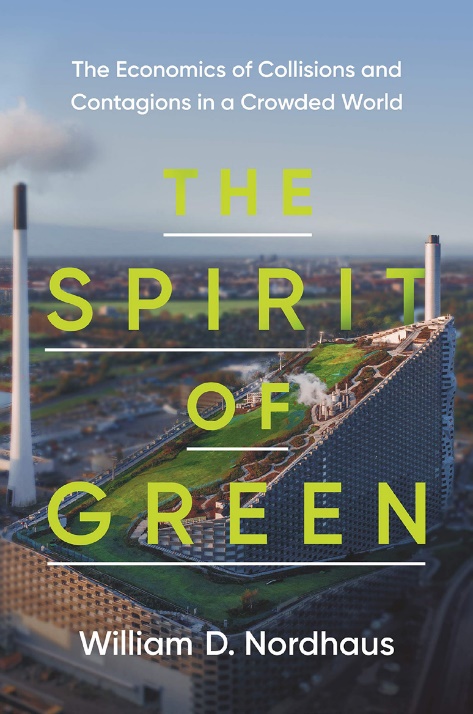William Nordhaus is Sterling Professor of Economics at Yale University, New Haven, Connecticut, USA. He was awarded the Nobel Prize in Economics in 2018. In his new book
The Spirit of Green: The Economics of Collisions and Contagions in a Crowded World, Nordhaus describes a new way of green thinking that would help us overcome our biggest challenges without sacrificing economic prosperity, in large part by accounting for the spillover costs of economic collisions. He believes that the globalized world is shaped not by isolated individuals but rather by innumerable interactions inside and outside the economy, and since China and the US are the largest carbon emitters in the camp of developing and developed countries respectively, both countries need to recognize that on global issues (like climate, pandemics, and nuclear weapons), there is no substitute for global governance, and that means that China and the US must work together as brothers and sisters.
PKU Financial Review: Our understanding of the "the Spirit of Green" is using the incentive and restraint means of the market, to combine the private power with public interests, then to solve social problems. This is the case for vaccine research and development under the COVID-19 pandemic. Vaccines are mostly developed by private companies, but they serve the interests of the public very well. Do you think "the Spirit of Green" has replaced the "invisible hand" or "animal spirit" and can overcome the so-called "market failure" or "government failure"?
Nordhaus: The spirit of green is the observation that a modern society much rely on both market and collective actions. We have neglected the analysis of the proper role of collection action in the past, and the book hopes to fill that need.
PKU Financial Review: You have always firmly supported setting a price on carbon emissions and imposing a carbon tax on this basis, but you do not agree to adopt a "carbon production caps" or "commitment to zero emissions." Because you think this will greatly destroy the economy, it is actually not feasible! On the contrary, the carbon tax method can not only provide tax rebates and subsidies to poor people with relatively low carbon emissions, but also encourage private enterprises to carry out more innovations in decarbonization and carbon capture technologies. How do you evaluate China's "carbon peak" in 2030 and "carbon neutral" in 2060, since China is following the mainstream "zero emissions" commitment table?
Nordhaus: I do not have a deep understanding of the complexity of Chinese policies. China is the most important country in leading the world on climate policy, along with the US. China needs to develop strong comprehensive policies, and work with US and other countries to develop the "climate club."

Markets can move with lightning speed. But they only move in the direction propelled by profits. By using appropriate fiscal signals, we can correct the incorrect market signals on green innovation and technologies. Then, as with COVID vaccines, markets can move quickly in the right direction.
PKU Financial Review: You calculated that the price per ton of carbon emissions is US$40 (carbon tax is levied on a 2-4% basis). We wonder if this price is universal? Is this $40 in line with China's current situation? Should the price of carbon emissions in developed countries be higher and lower in developing countries?
Nordhaus: This was calculated on the basis of identified damages. If instead countries decided to aim for a 2 deg C target, the price would be much higher, more than $100/tCO2.
PKU Financial Review: China and the United States are the largest carbon emitters in the camp of developing and developed countries respectively. The cooperation between China and the United States, especially on climate change and carbon emissions, is very important. Of course, this cooperation includes technology exchange and technology diffusion. Regrettably, China and the United States are undergoing a very cruel technological blockade and trade war, which has greatly slowed down mutual learning and proliferation in environmental protection. What do you think of the future?
Nordhaus: Both countries need to recognize that on global issues (like climate, pandemics, and nuclear weapons), there is no substitute for global governance, and that means that China and the US much work together as brothers and sisters.
 William D. Nordhaus
William D. Nordhaus
Sterling Professor of Economics at Yale University
Winner of the Nobel Prize in Economics
This article is translated and published in PKU Financial Review.

















